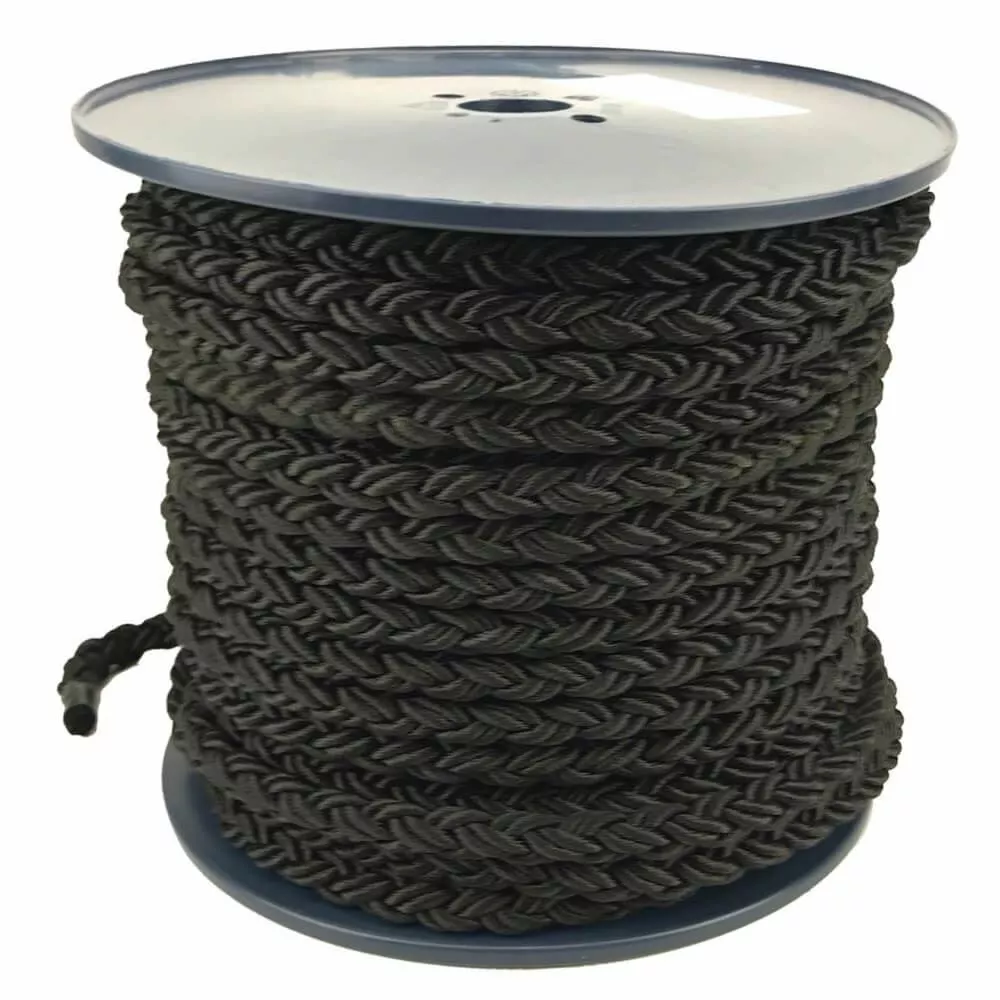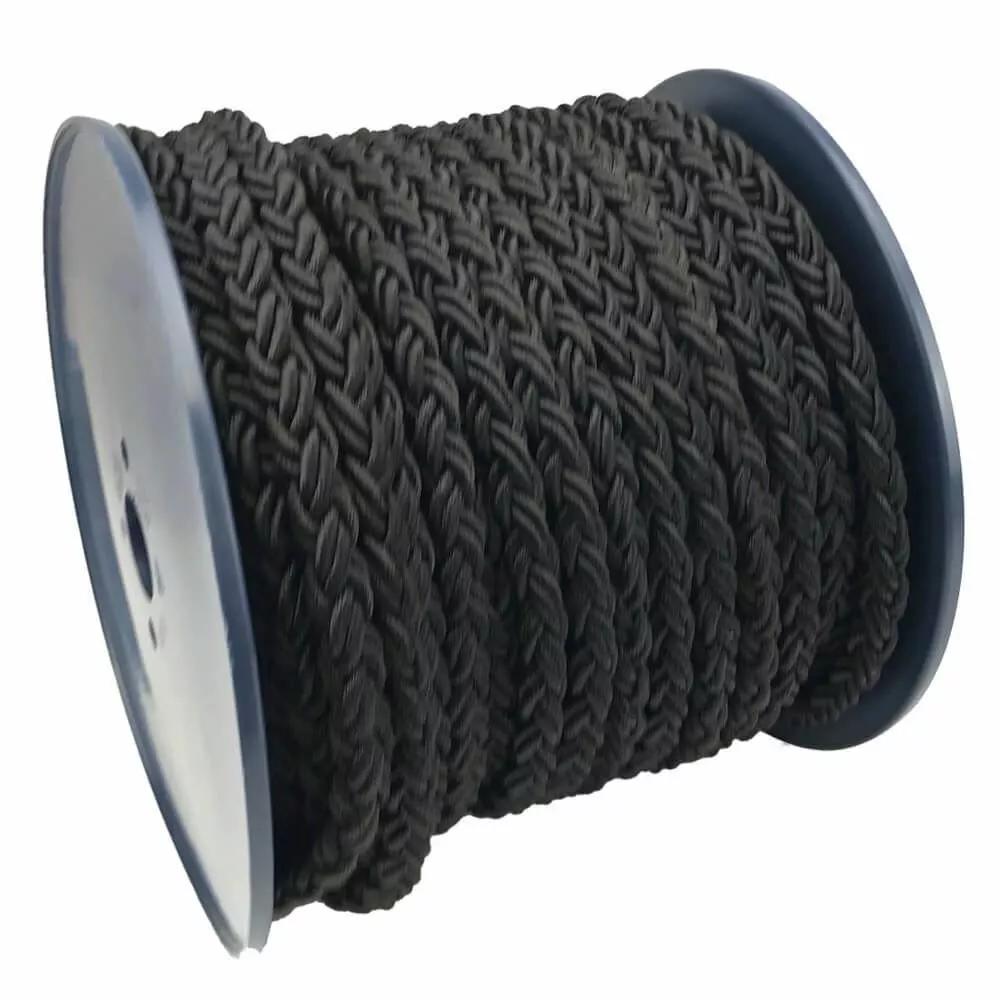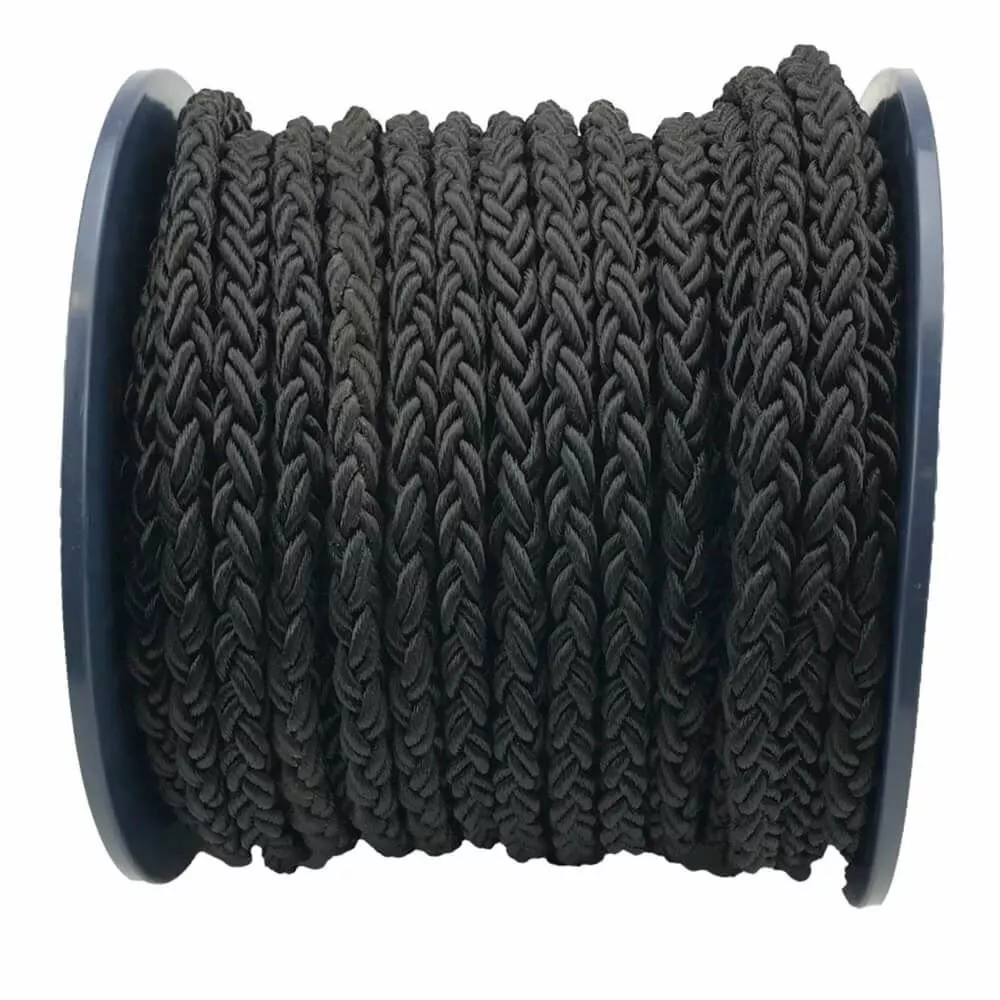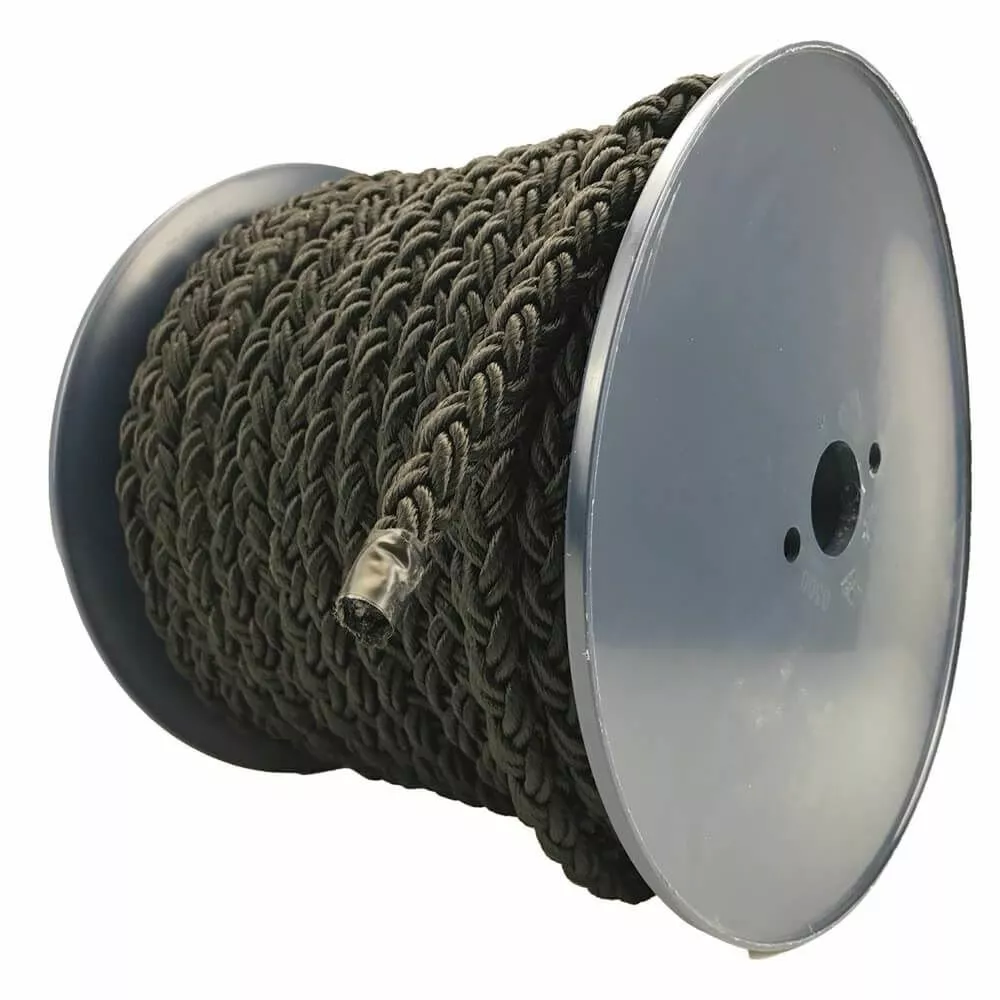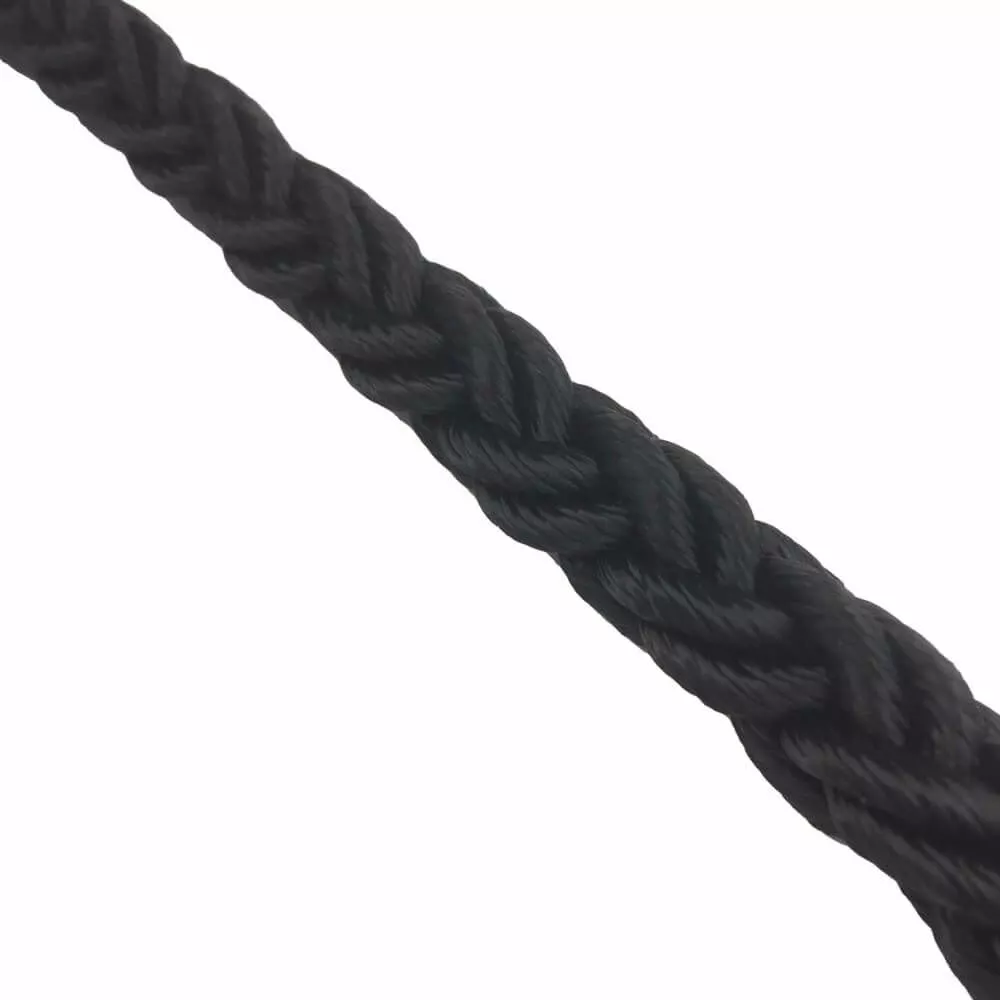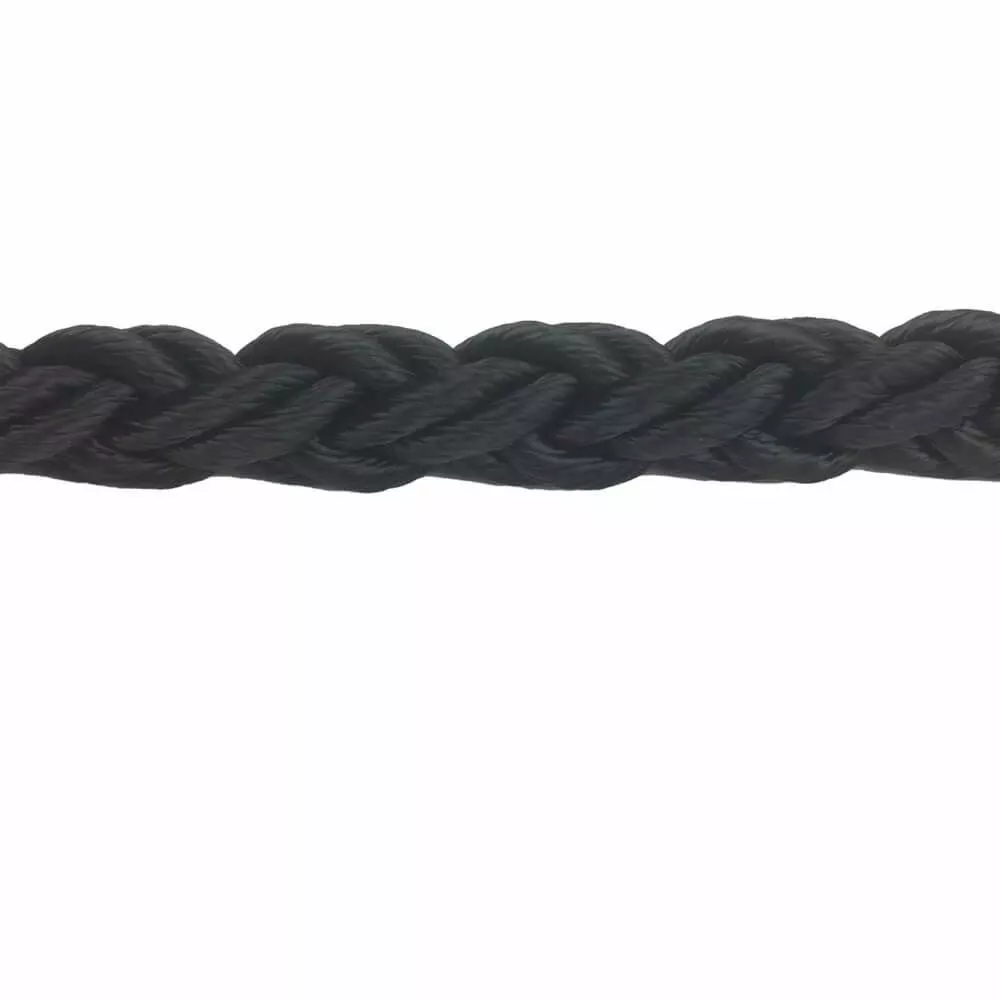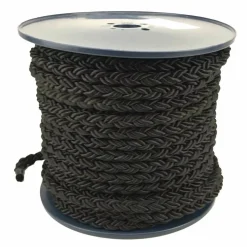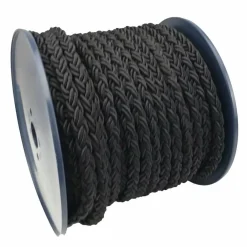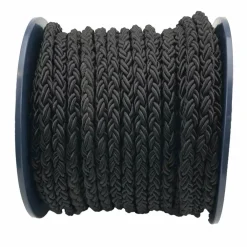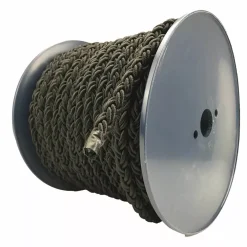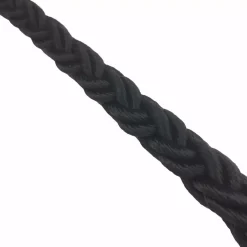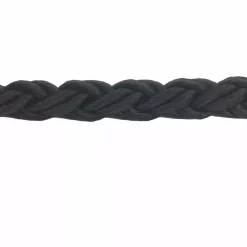Subtotal: £76.00
10mm Black 8 Strand Nylon Rope On A Reel
No reviews
£20.80 – £230.80
SKU: 128327
Categories: Nylon 8 Strand Rope, Nylon 8 Strand Rope - Reel, Ropes, Store, Synthetic Rope
Tags: 10mm, 8 Strand Nylon Rope, Black
Description
10mm Black 8 Strand Nylon Rope on a Reel
Our 10mm Black 8 Strand Nylon Rope on a reel is strong, reliable, and built to last. It’s a perfect choice for demanding tasks, both professional and domestic. Whether you’re towing, mooring, or handling heavy loads, this rope delivers consistent performance every time.
Key Features:
- Exceptional Strength: Thanks to its 8-strand construction, this rope handles heavy-duty applications effortlessly.
- Long-Lasting Durability: Not only is nylon resistant to wear and UV rays, but it also withstands most chemicals, making it ideal for harsh conditions.
- Easy to Use: Additionally, the rope’s flexibility allows for smooth handling and secure knots.
- Convenient Storage: Furthermore, it is supplied on a reel, so it’s easy to store, transport, and dispense.
Specifications:
- Diameter: 10mm
- Construction: 8-strand
- Material: Nylon
- Colour: Black
- Length: Custom reel lengths available
Applications:
This rope is suitable for various tasks. For instance, it’s great for marine use, industrial work, or outdoor activities. Moreover, its strength and durability make it dependable for securing loads or creating displays.
Why Choose Us?
At RopeServices UK, we cut all our ropes to order. As a result, you’ll get the exact length you need for your project. Because of our expertise in rope manufacturing, we guarantee the highest quality products every time.
Order your 10mm Black 8 Strand Nylon Rope on a reel today. Consequently, you’ll experience the perfect combination of strength, flexibility, and reliability.
8 Strand Nylon – Rope Specifications
| Diameter | Max Length Per Reel | Approx Weight Per Coil | Approx Breaking Load |
|---|---|---|---|
| 10mm | 220 Metres | 14.20kg | 2,309kg |
| 12mm | 220 Metres | 19.60kg | 2,997kg |
| 14mm | 220 Metres | 27.20kg | 4,282kg |
| 16mm | 220 Metres | 34.80kg | 5,302kg |
| 18mm | 220 Metres | 48.27kg | 7,341kg |
| 20mm | 220 Metres | 53.90kg | 8,300kg |
| 24mm | 220 Metres | 78.10kg | 12,032kg |
| 32mm | 220 Metres | 138.60kg | 19,986kg |
| 40mm | 220 Metres | 217.80kg | 29,979kg |
Please note that all weights and breaking loads provided are approximate. The breaking loads may vary depending on how the rope is finished. It is imperative to subtract 10% from the breaking load for each splice made in the rope. Additionally, please be aware that weights can fluctuate, particularly with natural products, due to differences in manufacturing processes and materials utilised.
Characteristics Of Synthetic Rope
Synthetic Rope and Its Properties
Synthetic rope is made from man-made fibers such as nylon, polyester, polypropylene, and polyethylene. These ropes are known for their high strength, durability, and resistance to various environmental factors. Unlike natural ropes, synthetic ropes do not absorb water, making them ideal for use in wet and outdoor environments. However, synthetic ropes have their own set of characteristics and considerations that you should be aware of.
Behavior in Wet Conditions
One of the key advantages of synthetic ropes over natural ones is their minimal water absorption. Synthetic ropes generally do not shrink or expand when exposed to moisture, making them highly reliable in marine, industrial, and outdoor applications. However, while they do not absorb water, some synthetic ropes may become slippery when wet, which can affect handling and knot-holding capabilities.
Effects of UV Exposure
Unlike natural ropes, synthetic ropes are resistant to rot and mildew, but they can be affected by prolonged exposure to UV rays. Over time, UV exposure can weaken the fibers, causing the rope to degrade and lose strength. To mitigate this, synthetic ropes can be treated with UV inhibitors or stored out of direct sunlight when not in use.
Resistance to Chemicals and Abrasion
Synthetic ropes are generally more resistant to chemicals and abrasion compared to natural ropes. For instance, nylon and polyester ropes are highly resistant to various oils, acids, and alkalis, making them suitable for harsh industrial environments. Additionally, these ropes have excellent abrasion resistance, which means they can withstand rough surfaces without significant wear.
Elongation and Stretch
Different types of synthetic ropes have varying degrees of elongation. For example, nylon rope is known for its elasticity, which allows it to absorb shock loads without breaking. This makes nylon rope ideal for dynamic applications such as climbing, towing, and mooring. On the other hand, polyester rope has low stretch, making it suitable for applications where maintaining tension is critical.
Care and Maintenance
To extend the lifespan of synthetic ropes, it’s important to follow proper care and maintenance practices. Regularly inspect the rope for signs of wear, abrasion, or UV damage. If the rope shows significant signs of wear, such as fraying or thinning, it should be replaced to ensure safety and performance.
Storage Considerations
When storing synthetic ropes, keep them in a cool, dry place, away from direct sunlight and chemicals. Coiling the rope properly and avoiding tight bends can also help prevent kinks and maintain the rope’s integrity.
Summary
Synthetic ropes offer numerous advantages over natural ropes, including resistance to water, rot, and chemicals. They are durable and strong, making them suitable for a wide range of applications. However, it’s important to be aware of their susceptibility to UV damage and to take appropriate measures to protect the rope from prolonged exposure. By properly maintaining and storing synthetic ropes, you can ensure their longevity and reliable performance in various conditions.



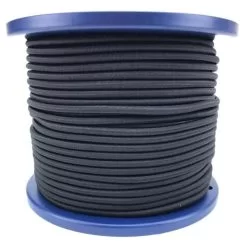 8mm Black Elastic Bungee Shock Cord 100 Metre Reel
8mm Black Elastic Bungee Shock Cord 100 Metre Reel 